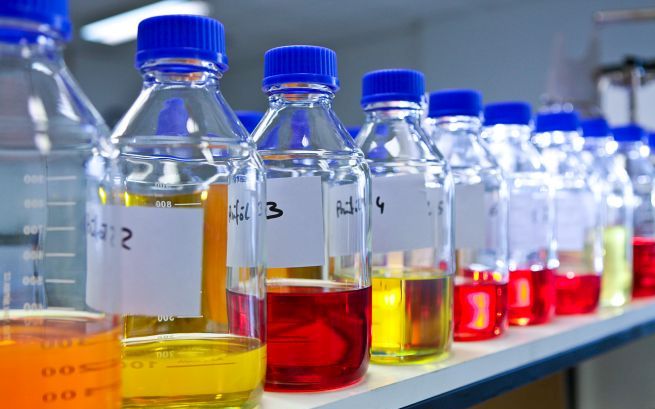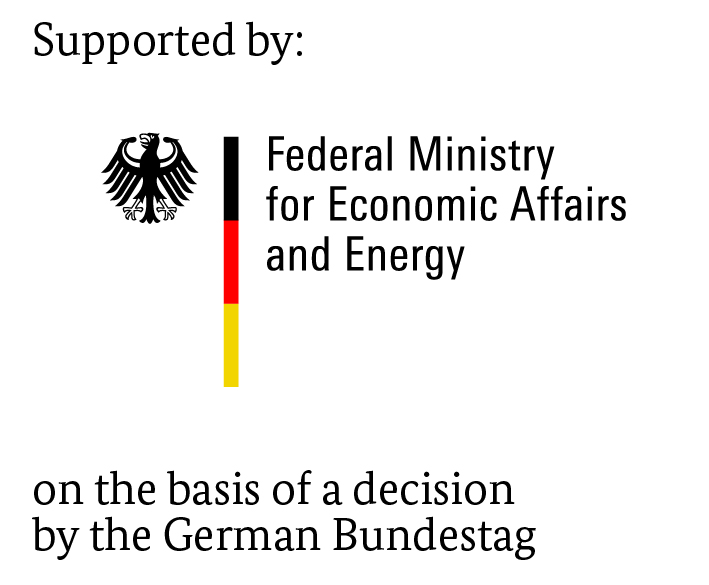OWI develops new measuring method
28 August 2020 – In a current research project, OWI Science for Fuels gGmbH is looking for a cost-effective method to derive valid information on the long-term stability of liquid fuels and combustibles with the aid of sensors and suitable parameters. For this purpose, the research institute is testing various sensors that could provide an indication of the remaining storage time of tank contents by continuously recording measurement data. The aim is to make it possible to predict the shelf life of a fuel stock from the measurement data in order to derive recommendations for further use of the fuel.

Fuel samples in test. (Photo: OWI)
Such a screening would also be conceivable as a preliminary stage to otherwise common chemical-analytical methods for determining long-term stability or usability, which have so far been carried out at fixed intervals. The more costly analysis, including the special logistics of taking and sending physical samples to a laboratory facility, would then be more appropriate to the needs of the laboratory.
In the current research project, OWI Science for Fuels is further developing an existing test rig with the aid of sensor technology, building on the findings of previous projects. During long-term storage of various fuels under defined conditions and parallel forced ageing of the same fuels on the test bench, data is to be continuously recorded by the selected sensor and then compared and correlated. Compared with the previously customary measurements at intervals, continuous data acquisition represents an important advance in fuel analysis. A total of 14 different fuels or their blends are the object of investigation. These include, for example, 4 different low-sulfur fuel oils as well as rapeseed methyl ester, hydrogenated vegetable oil, a gas-to-liquid (GtL) fuel and a fatty acid methyl ester produced from used cooking oils.
With the research results envisaged, a new field of business in the area of quality monitoring could be opened up for applications with special storage conditions and requirements for the long-term stability and operational safety of fuels. Such innovative screening systems could be used, for example, in areas such as emergency power supply systems, for rarely used equipment and vehicles belonging to organizations such as the fire department or technical aid organizations, and for seasonally used equipment such as sports boats, snow groomers, or generators at ski lodges.
The IGF project 21047 N of the research association German Society for Petroleum and Coal Science and Technology e.V. – DGMK, Überseering 40, 22297 Hamburg is funded through the AiF as part of the program for promoting joint industrial research (IGF) by the German Federal Ministry of Economics and Energy based on a German Federal Parliament resolution.






